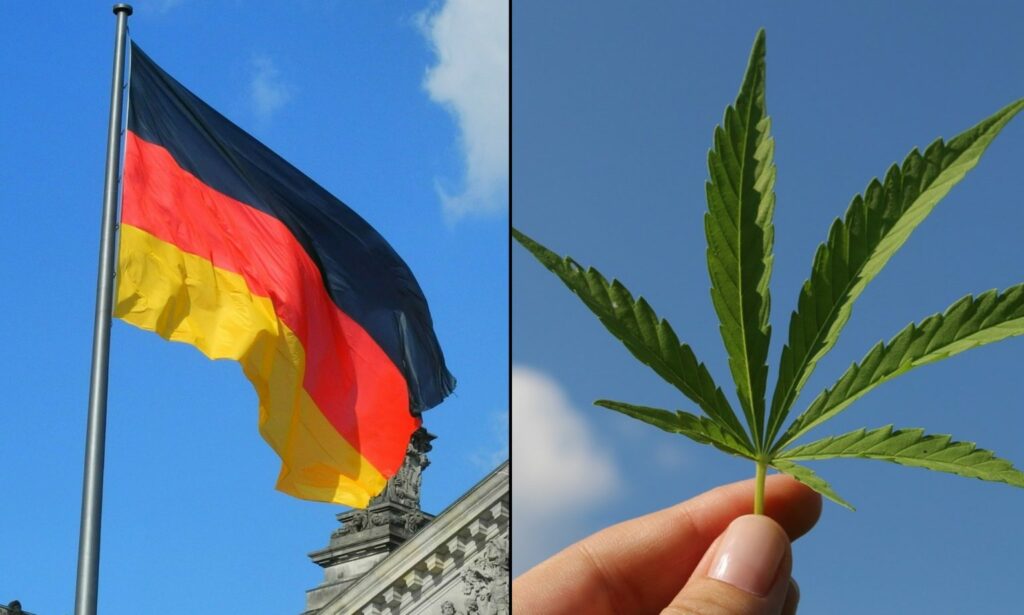Germany, one of the largest economies in Europe, is poised to become the first major European country to legalize cannabis for recreational use. The German government has recently approved a draft bill that would allow adults to buy and possess cannabis. If the bill passes through Parliament, it will mark a significant turning point in the country’s drug policy and pave the way for a controlled legalization framework. This article provides an in-depth analysis of the proposed legislation, its implications, as Germany is Close to Cannabis Legalization.
Germany Close to Cannabis Legalization
Germany’s path towards cannabis legalization has been a complex and challenging one. The coalition government, led by Chancellor Olaf Scholz, made a commitment to regulate personal cannabis consumption when it came to power in 2021. However, implementing this commitment has proven to be a formidable task. The original plan to allow the sale of cannabis through commercial stores faced opposition from the European Commission, leading to a significant shift in the proposed legislation.
The recently approved draft bill takes a more conservative approach, allowing distribution through licensed private cultivation associations with a maximum of 500 members. Adults would be able to purchase and possess up to 25 grams of cannabis for personal use. The government also plans to launch regional pilot programs to gather insights about the impact of commercial cannabis sales.
Addressing Concerns and Maintaining Control
The proposed legislation has faced criticism from both opponents and advocates of cannabis legalization. Critics argue that the bill either goes too far or not far enough in addressing key concerns. Some members of the opposition bloc express concerns about the potential risks to minors and the burden on law enforcement. However, proponents of the bill argue that it strikes a balance between limiting consumption and minimizing the black market.
Health Minister Karl Lauterbach, a key figure in the legalization effort, emphasizes that the legislation is centered around safeguarding minors and maintaining control over cannabis consumption. The bill includes provisions that prohibit marijuana possession for children under 18 and impose limits on young adults aged 18 to 21. These measures aim to ensure that the legalization framework does not lead to an increase in cannabis use among vulnerable populations.
Potential Benefits and Challenges
As Germany comes close to cannabis legalization, it could have several potential benefits. First and foremost, it could help curb the black market, which currently thrives due to the illegal status of cannabis. By providing a legal and regulated market, the government hopes to ensure consumer safety and reduce drug-related crime. Additionally, legalization could lead to economic opportunities, job creation, and tax revenue generation.
However, challenges lie ahead for the German government. The success of the proposed legislation will depend on effective implementation and regulation. Striking a balance between preventing excessive consumption and meeting consumer demand will be crucial. The government also needs to address concerns related to the licensing and operation of cannabis cultivation associations. Ensuring compliance with strict rules for growing weed and preventing sales to minors will be essential for the success of the legalization framework.
Learning from International Experiences

Germany has drawn lessons from the experiences of other countries that have legalized cannabis. The plan to launch regional pilot programs mirrors similar initiatives in the Netherlands and Switzerland. These programs aim to gather data and insights about the effects of commercial cannabis sales on the population. Thus, by learning from the successes and challenges faced by other countries, Germany hopes to develop a robust and effective framework for cannabis legalization.
The Medical Cannabis Market
The legalization of recreational cannabis in Germany could also have significant implications for the medical cannabis market. As well as, the reclassification of cannabis as a legal substance could lead to increased accessibility and affordability of medical cannabis for patients. By removing bureaucratic hurdles associated with the narcotic classification of cannabis, the legislation could result in cost savings for pharmaceutical wholesalers and medical practices.
The European Context
Germany’s move towards cannabis legalization reflects a broader trend in Europe. Several countries in the European Union have expressed interest in decriminalizing or legalizing adult-use cannabis in recent years. Malta, a small archipelago in the Mediterranean Sea, became the first EU member country to legalize marijuana. Germany’s potential legalization would mark a significant step forward, given its status as the largest European economy.
Conclusion
In conclusion, as Germany comes Close to Cannabis Legalization. The proposed legislation, if passed, would allow adults to buy and possess small amounts of cannabis for personal use. The government’s approach emphasizes controlled legalization, with measures in place to limit consumption, protect minors, and curb the black market. While challenges lie ahead, Germany’s experience can serve as a valuable lesson for other countries considering cannabis legalization. As the debate continues, the world watches to see how Germany’s bold move unfolds. Whether, it will inspire further changes in drug policy across Europe.


